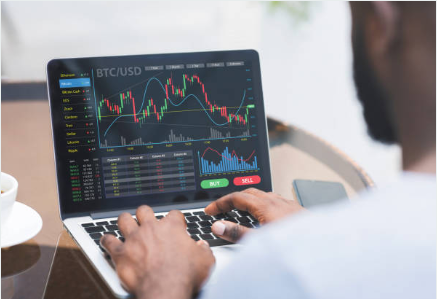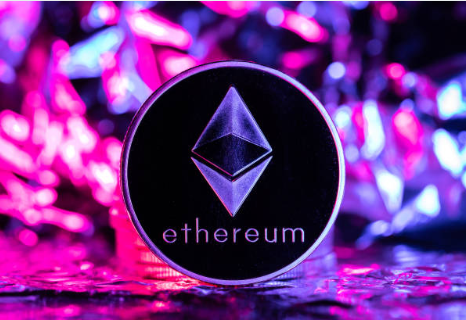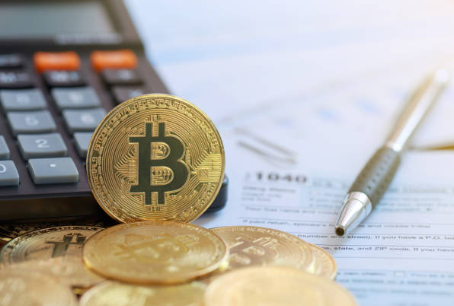What Is the Definition of Crypto?
Crypto, also called cryptocurrency or digital currency, refers to a class of virtual, decentralized, and peer-to-peer (P2P) financial instruments that can be used for exchange and for investment purposes. It allows individuals and organizations to carry out their day-to-day activities securely over a network without relying on any centralized authority. Some examples include cryptocurrency wallets or crypto exchanges; however, there are several others. Cryptocurrencies have unique features, such as transparency, decentralization, and security. However, they also have limitations, such as limited use cases, high transaction fees, and lack of regulation; as a result, it’s important to do your research before investing in cryptocurrencies.
How Do Digital Currencies Work?

Crypto uses a technology known as blockchain to secure its transactions, which makes them resistant to fraud. Each block in a blockchain contains information about the previous block, making it highly transparent and tamper-proof. Once a transaction has been verified by the network, it becomes permanent and cannot be altered. This makes it incredibly difficult to hack or manipulate an encrypted system. Therefore, it’s essential to keep your private keys offline and separate from the rest of your assets.
Types of Bitcoins
There are two main types of bitcoins, BTC and ETH. They are different in nature but have similar characteristics. In general, the more expensive type of digital currency tends to be faster and cheaper, but may not offer greater security or privacy. On the other hand, lower-priced bitcoins tend to be less efficient and may not provide you with the same level of anonymity and freedom as higher-priced ones. Thus, it’s best to consider the benefits and costs of each type of bitcoin carefully before deciding whether to buy one.
How Many Units Does Ethereum Have?
The number of units in Ether is referred to as “Ether” or “Ethercoin.” The unit size of this cryptocurrency is equal to 100,000, and its price was $0.0159 on January 10, 2023. There have been reports of ERC20 tokens being used as part of non-fungible token projects, including NFTs like Enjin’s Fantom. ERC20 tokens were originally intended to represent real-world assets like land, real estate, stock, and bonds.
How Can I Buy Ethereum?

The process of buying Ethereum can be confusing. One way to get started is through cryptocurrency exchanges. You’ll need to choose a platform that supports both Ethereum and Ethereum Classic. A reputable exchange will likely be able to confirm your purchase once you make your payment, and some even offer discounts or early access to new users. Other means of getting hold of Ethereum include participating in the Ethereum Foundation Program or signing up for a wallet via a website. If you’re interested in learning more about how to invest using Ethereum or want help with investing, contact our team at 888-333-4307.
How To Make Your First Investment With Bitcoin?
One option is to buy Bitcoin directly, either using traditional banks or crypto platforms, or through an exchange. Bitcoin can be purchased for free with credit cards and debit/credit cards. Since we don’t typically recommend purchasing bitcoin for cash, doing so could increase the risk associated with doing so.
Another option is to buy crypto through a brokerage account, although most brokers charge a fee for services provided. These funds will typically go towards purchasing Bitcoin instead of fiat currencies. Investing in Bitcoin can be risky if you choose to buy for cash, as there is no guarantee that your money will be returned.
How Long Does Bitcoin Last?
Bitcoin’s life span depends largely on what you’re willing to put into it. Typically, Bitcoin stays around for around 2 years to 3 years. After that point, it loses value quickly and may become worthless altogether. It also takes time for Bitcoins to reach full maturity. As an example, 1 BTC cost $12,000 in 2021, but by 2019, it had lost 99.99% of its value.
Does Bitcoin Exchange Really Exist?
The term “exchange” might seem strange when describing something you haven’t ever done before. But for those unfamiliar with cryptocurrency, an exchange is simply a place where you can store your coins. You can then transfer them between other people or platforms who accept Bitcoin. An exchange can be a good option if you’re looking to trade, but it should only be considered one option if you’re planning on spending significant amounts of money.
Should Investors Consider Buying Or Holding Them?
When considering whether to buy bitcoin or hold it, it’s vital for investors to understand what their goals are, as they could potentially lose their entire investment if they decide to sell too soon. For instance, if you decide to hold it, you will be responsible for all losses. Also, it’s possible cryptocurrency prices may fluctuate, causing your returns to decrease. While holding them will give you peace of mind, buying would allow you to take advantage of market opportunities, which could result in huge profits.
Is Bitcoin Safe?
One way to ensure safety is to keep all of your digital assets online. By storing them in a cold storage wallet, which is the safest form of storage in regards to hacking or theft, your data remains safe from cybercrime. Another option is to keep your digital assets in a hot storage wallet, which is another form of storage that is widely accepted as safer than cold storage. Furthermore, it provides you with complete control over your own information. Finally, it’s crucial to note that while cold storage wallets are safer than hot wallets, they are still vulnerable to physical thefts. Additionally, it is possible for hackers or thieves to gain access to your passwords and personal information.
How Much Does Coin Cost To Buy And Sell?
The cost of trading cryptocurrencies varies depending on the specific coin you’re considering buying or selling. For instance, Bitcoin requires buyers to pay anywhere from 0.10 cents to 0.20 dollars per bitcoin for purchases and sales. This includes both the actual transaction fee and transaction processing fee, depending on the transaction size. Generally, exchanges charge fees, and if you’re buying large amounts or making multiple trades, it could mean paying more than twice as much as you would if you traded smaller amounts. That said, it’s always best to check beforehand to see if you’ll be charged any amount at all.

